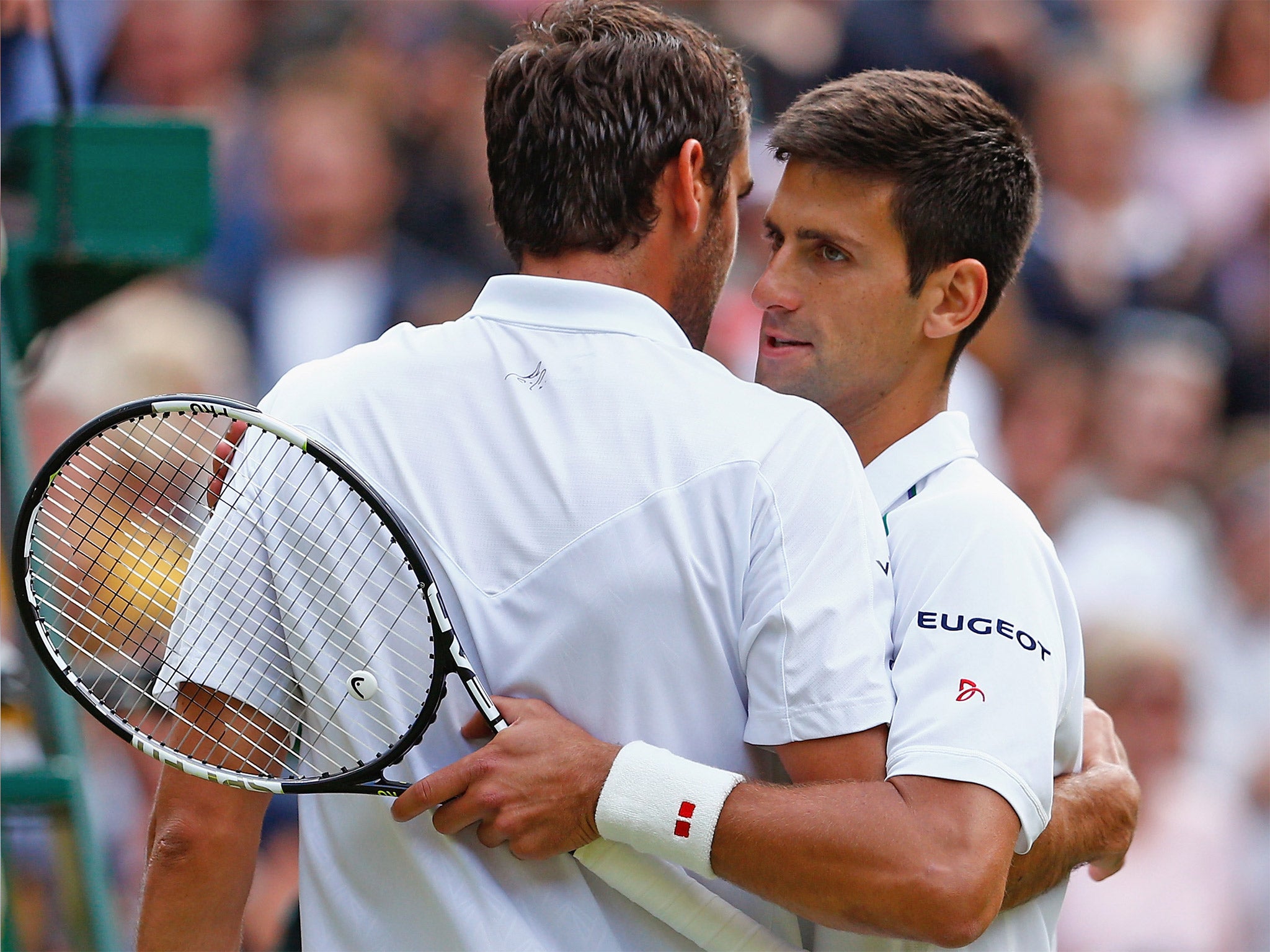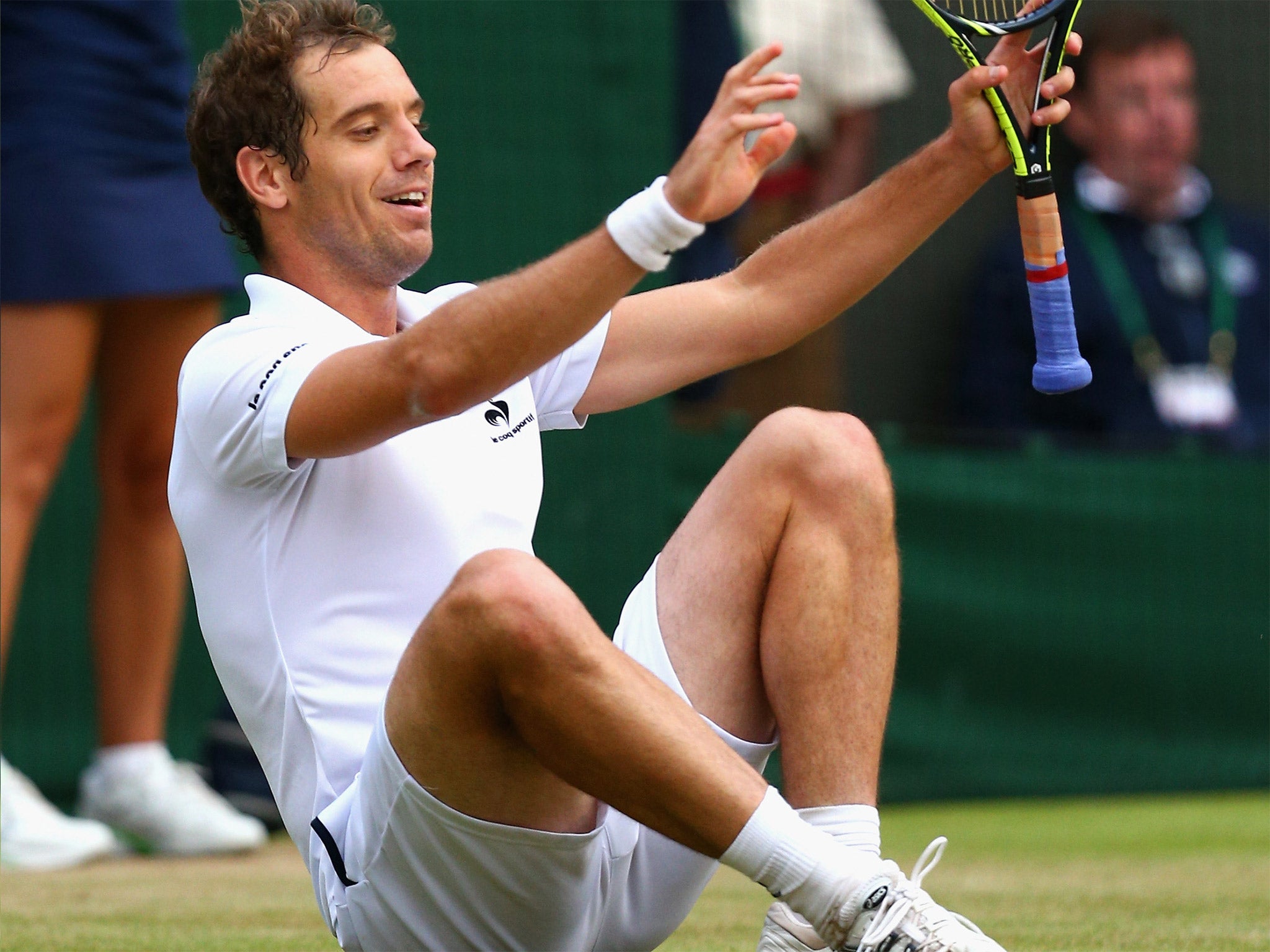Your support helps us to tell the story
From reproductive rights to climate change to Big Tech, The Independent is on the ground when the story is developing. Whether it's investigating the financials of Elon Musk's pro-Trump PAC or producing our latest documentary, 'The A Word', which shines a light on the American women fighting for reproductive rights, we know how important it is to parse out the facts from the messaging.
At such a critical moment in US history, we need reporters on the ground. Your donation allows us to keep sending journalists to speak to both sides of the story.
The Independent is trusted by Americans across the entire political spectrum. And unlike many other quality news outlets, we choose not to lock Americans out of our reporting and analysis with paywalls. We believe quality journalism should be available to everyone, paid for by those who can afford it.
Your support makes all the difference.As the light faded and an epic contest stretched further into the twilight zone of an extended fifth set, it began to move by invisible increments away from the reach of Richard Gasquet. Then, on the brink of defeat, he won it.
In more than a decade on the circuit, the Frenchman has earned the reputation of something of a choker. Giving the Parisians something to cheer about at his home Grand Slam is a heavy burden that British tennis fans of a certain age should well understand. But he has buckled beneath it all too easily. That familiar unwanted emotion lodged itself in his throat when he served for the quarter-final against Stanislas Wawrinka at 5-4. His chance came and he fired it long beyond the baseline.
That was the moment, Gasquet said, “I told myself I have to fight better.” He recalled, then, his most recent encounter with Wawrinka, in Paris in 2013, when he had been two sets in front only to lose 8-6 in the fifth.
“He won in Paris. I am French. I know what it means to win that tournament. Now, in the biggest tournament in the world, I won 11-9. I know how important it was to win that match.”
Now, Novak Djokovic awaits. “It will always be incredible players you face in semis,” Gasquet said. “I want to reach that final. Novak is the favourite but I want to take my chance. We will see what will happen.”
In the end it was Wawrinka who faltered. He had been imperious on the four occasions he had served to stay in the match, but the 20th game of the final set was handed to his opponent via two weak shots into the net and a needlessly high looping cross-court backhand that returned to earth a foot beyond its target. And with it the match was gone.
A backhand here, a forehand there and Wawrinka might have made his claim on what looks to be a newly vacant spot in tennis’s “Big Four” feel almost permanent. A win for the Swiss would have made this the first time since 1995 that the top four seeds had made the semi-final. It was Sampras, Agassi, Becker and Ivanisevic then. Such are the fickle vagaries of sport.
The contest had been an extended masterclass in the one-handed backhand, that running, flashing swipe that exists at the nexus where sport meets art, which has become threatened with extinction in recent years. Gasquet found it had deserted him at what should have been the crucial moment. The successful execution of his favourite shot would have given the Frenchman two match points on his own serve with the fifth set poised at 5-4. He fired it long. It had felt portentous at the time. In the end it didn’t matter.

It means there will be no rematch of their Paris final between Wawrinka and Djokovic. The prospect of the unlikely conqueror of Roland Garros firing his ferocious baseline ground strokes over the net would have been a far more traumatising proposition for Djokovic than the challenge he now faces.
The ease with which the world No 1 and reigning champion passed by Marin Cilic, the mighty Croatian with the meteorite serve, was the most fearsome vision that came to pass on men’s quarter final day. There is always a frisson of danger any time the eyes of a Serb and a Croat meet across a sporting amphitheatre, but the vitality of this encounter was strangled by the excellence of Djokovic’s execution. One break of that ferocious serve in each set was all that was required.
“Richard is in the semi-finals for a reason,” Djokovic said. “He always had a touch, he always had the talent. He loves playing on grass. I expect him to come out on the court in two days wanting to win.
“It’s a great effort from him to mentally stay tough because Stan, you know, is one of the toughest players on the tour. In decisive moments he goes for his shots.”
Gasquet has at least done what Djokovic failed to do. When Wawrinka’s searing backhands and punishing forehands came, he met them, and returned them with increasing intensity. At Roland Garros, that challenge proved beyond Djokovic. That will be the hope to cling to.
Such formalities as a Wimbledon semi-final will not make the likes of Djokovic nervous, he has been here too many times before. For Gasquet it is unfamiliar territory. He has much to fear, but nothing to lose.

Join our commenting forum
Join thought-provoking conversations, follow other Independent readers and see their replies
Comments